#so worth the price that Ticketmaster inflated
Explore tagged Tumblr posts
Text
Just went to the Orlando Dan and Phil T.I.T show and holy shit the audience was fucking feral. It was awesome.
#I had so much fucking fun#The Hard Rock Cafe has a bar built into the theater and at some point Dan stole a tequila#We got called feral motherfuckers and we enjoyed it#tit show#tit tour#terrible influence tour#dan and phil#so worth the price that Ticketmaster inflated
9 notes
·
View notes
Note
Do you think K-pop concert ticket prices are too expensive now? What do you think should be the threshold, and what can be done to give all fans, whether casual or diehard, a great experience?
I could go on an entire rant/tangent on what I think concerts as a whole should be like, but it would be the length of a regular fic, so I'll spare you every issue and thought I have about them. I've only been to one concert in my whole life, so I don't have the experience or depth that other concertgoers have, but let's just say the streaming and COVID economy fucked up everything.
Prices: I believe the terrible royalties from streaming, as well as the increased demand for live shows in general has caused these ticket prices to skyrocket. Like you can't just buy a ticket for a decent seat for less than $70 now, that shit only gives you nosebleed seats. Not to mention the deliberate collusion of scalpers by ticketing sites. Those resale tickets and third parties directly cooperate with Ticketmaster so they can punch a bit more money from consumers. And don't even get me started with Dynamic Pricing and those terrible service fees. I'm fortunate enough to live in a country where such things don't exist, but with HYBE openly expressing their intention to enable dynamic pricing and finding alternatives in places where it's not available, you can bet they'll find a way to punch up the prices too.
I understand why they charge this much. Fans will go out to see their favorite artist, regardless of how much they complain about it. FOMO. You don't know if they'll come back to your country or city, or when. Not to mention, the typical K-pop concert is a much grander production than, say, your average pop star. You got backup dancers, large stages, numerous costume changes, sometimes a live band, and of course, multiple members with dozens of staff managing a group. Concerts are the biggest revenue/income drive now for a majority of artists because of how music is distributed today, so they have to break even. Doing world tours are costly; consider the VISA and other costs on a country-to-country basis. No wonder they'd rather tour the US and Japan only to save a few thousand dollars.
It's difficult to gauge the threshold because popularity and demand is fickle, especially in K-pop. However, if there has to be a limit, I personally would stop at around $1000-sub range. There's not a damn singer or artist on planet earth, dead or alive, that's worth over a $1000 ticket. Even MJ. The economy isn't looking good, inflation keeps jumping year by year, and concerts have become basically rich people havens too.
Personally, I do think it'll eventually die out. There's a touring oversaturation right now that it dries people out and we have to pick and choose who we want to attend.
There's a few things I really want to see happen in the future, ideally:
• Rookies shouldn't be pricier than their seniors. I don't care if its NewJeans, IVE, or Le sserafim, they really shouldn't be more expensive than say, a 3-4 year old group. It's ridiculous how NMIXX and IVE were more expensive than The Boyz or ATEEZ.
• Announcing ticket sale literally right after the tour announcement. This is something I absolutely hate. Why are you selling tickets for a show six-eight months away like two weeks after announcing it? Fucking insane! It gives us little to no prep time to gather up resources and plan accordingly. Also, what if something happens that causes a concert to be canceled or delayed? It'll be much harder for us to get refunds back, which is exactly why they pull this shit off. Normalize selling tickets at most two months-a month before the show.
• Make the ticket prices worth it. This is my biggest gripe with concerts, more than the prices: that you're basically paying for the seats and nothing else. I'm not gonna lie, I likely wouldn't have gone out to my one and only concert if I wasn't guaranteed anything else besides a nice seat. Pre-pandemic, the price of the ticket I bought would have given me a group/solo pic with the group and some other cool perks like maybe signed merch. Now? Most concerts give you the show and nothing more. You have to justify paying that hefty tag beyond just a close view of your favorite artist. I remember when pop stars like Taylor Swift, Ariana Grande, and The Weeknd had photo-ops before the show for those VIP tivkets. COVID ruined all of that. It's such a damn shame, because at best, you're getting soundcheck, which I'm not fond of, in my opinion. It forces people to bait for interactions and not enjoy themselves during the show cuz they aren't guaranteed artist engagement (though this won't really change anything if we're being real lol). I personally would be a lot more comfortable and have a greater time if I knew I could greet them before or after the show instead of trying too hard to get their attention.
5 notes
·
View notes
Text
How much is a loaf of bread?
Call me old fashioned, but I don’t think concert tickets, or any sort of ticket to see someone perform, should cost the same, if not more, than a month’s worth of rent. In the last several years, we’ve seen ticket prices skyrocket. Why? Because when you add Ticketmaster to an artist who doesn’t know how much a loaf of bread costs, you’re going to get outrageous prices. Is it entirely the company’s fault? Probably not. The artists that use Ticketmaster are also to blame. But we’ll dive into that aspect shortly.
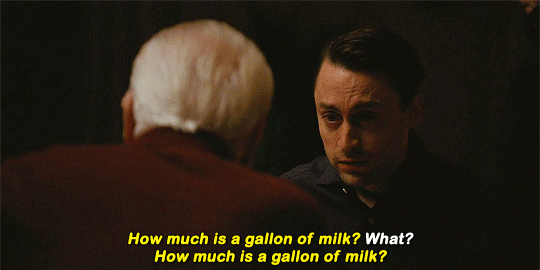
Alright, so let’s just talk about Ticketmaster for a bit, and my arch nemesis Official Platinum (OP). According to Ticketmaster, Official Platinum Seats are premium tickets made available by artists and Event Organizers. They also go on to say that these seats in particular give fans access to “some of the best seats in the house”. FALSE! All of the seats that are open for OP are all over the place, spanning from the pit all the way up to the nosebleeds. And if you want a ticket at all, you have to use the OP function because the standard tickets sell out in a matter of seconds.
Ticketmaster’s OP option apparently enables “market-based pricing”, which is basically as more people buy seats, the prices go up. They’re saying this is similar to how hotel and airline prices are sold. Okay, but this isn’t a hotel or an airline. It’s for a fucking ticket to an event that’s less than three hours long, and you’re not being provided the same service you would get at a hotel or on a plain.

“Enabling artists and other people involved in staging live events to price tickets closer to their market value.” ENABLING ARTISTS! This is a function artists and their teams choose to use. They do this so they can get paid more because the artists don’t get any of the resale money when tickets are resold on other sites. Okay???? They’re still getting paid for the original ticket that was bought, right? So what does it matter?
Sites like StubHub and the like used to be where you could find tickets for cheaper prices. Now the prices are just as high, if not more, than what people bought them for off Ticketmaster because they know, for certain artists, someone out there is willing to pay over $1000. We’ve seen this time and time again with other companies. Air BnB used to be a way to have a more affordable vacation. Uber and Lyft used to be more affordable than getting a cab. Etc, etc. The real kicker for me is that this only happens in the U.S. I have friends around the globe, and they don’t have to deal with prices inflating. So why is like that here? Answer me that Live Nation! Oh, wait, LIVE NATION IS OWNED BY TICKETMASTER, SO IT’S NEARLY IMPOSSIBLE FOR ARTISTS TO USE OTHER TICKETING SITES TO SELL THEIR TICKETS FOR REASONABLE PRICES!

People like to blame the venue itself, but it’s not necessarily the venue’s fault. They’re being told how things are done. They have to follow Ticketmaster’s rules. Now, at smaller venues where maybe an artist is slightly less known, but still popular, most of the time it’s about $45 for a general admission (GA) ticket. For example, venues like The House of Blues in Boston typically sell their tickets for $45, that’s with fees included. Smaller venue means less crew that need to be paid. The stage doesn’t need to be made up or broken down. So obviously the price of the ticket is going to be less.
And I understand that people need to be paid, I’m not saying that these people who work incredibly hard behind the scenes don’t deserve to be paid, I just think it shouldn’t be at the expense of the fans. There has to be another, more feasible way to make sure the crew and all the other folks are getting their money. And I know some artists have to wait a while to be paid because the label has to get paid, the record company has to get paid, the managers have to get paid, and so on. But isn’t that what selling merch is for? I thought things like that helped to offset the cost. Or, you know, the hundreds of dollars worth of taxes and fees.
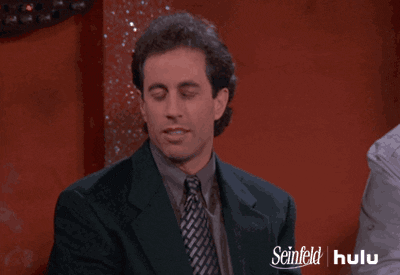
OP has been around for a long time, but with less and less venues selling tickets through their physical box offices, we’re basically forced to buy tickets online, and pretty much only through Ticketmaster. I’m sure there were some good intentions in the early days of OP, but it’s become the bane of many peoples’ existence.
Many artists use the OP function to make more money. Okay, that’s fine if face value is between $50-$150, I guess? There’s nothing more infuriating than clicking on tickets and getting them in your cart, only for the price to have doubled in the two seconds the page was refreshing. Then you either have to buy them, or go back in and try again. The whole process is exhausting! What’s always mind boggling to me is when I’m trying to get GA tickets, and I get the pop up from Ticketmaster saying, “another fan has already purchased these”. THEY’RE GENERAL ADMISSION, WHAT DOES IT MATTER????

I didn’t know things were this crazy up until a couple of years ago when I became a fan of Harry Styles. Signing up for presale, clicking into waiting rooms (if you were lucky enough to get a presale code), waiting in queues only to be told there’s 2000+ people ahead of you in line. What I’ve noticed more and more is that there’s a presale for everything, so by the time general sale happens, there’s no good seats left. How is that fair? There also is rarely ever a limit to how many tickets you can buy, so scalpers and bots buy up entire rows of seats, and go onto resale sites to sell them for double or triple the original price.
There are presales for Spotify users, but you have to make sure you’re following that artist and listening to them enough for Spotify to even send you a code. And now some credit cards are giving out presale codes! AMEX is the one I see most often. You have to your AMEX card on file in your payment options for Ticketmaster to be considered for their presale. And when you get to the event itself, AMEX users sometimes get access to merch that no one else has access to, and more. Then you have “verified fan” (VF) presale.
According to Ticketmaster, VF is another way to help artists to get more of their tickets into the hands of the fans, not just to resellers. Wasn’t that the intention of OP? Awesome, another hoop to jump through. Only this time, you’re signing up to be registered for a chance to obtain this presale that is automatically linked with your Ticketmaser account. So you can’t even share your code with your friend. They would have to sign into your account to get the tickets, and then transfer them. AMEX does this as well for their presales.
A lot of these presales happen on different days and times. I’ve had to literally put them on my calendar so I’d remember which day and time I could try for specific show dates. The most annoying thing about VF is that it’s a lottery system. You’re not guaranteed VF just from registering for it. I’ve only been lucky enough to have VF one time, but even still you’re not guaranteed tickets because you still have to wait your turn in the queue, and then it’s a race to select and buy your tickets.
What happens if you don’t get selected for VF? Ticketmaster sends you a bullshit email telling you that you’ve been added to a waitlist, and if all the tickets they’ve set aside for VF don’t sell, then you’ll be taken off and given access. This literally never happens. No one ever gets taken off the waitlist. Just be blunt and say I didn’t get VF and let me know what my other options are, if there even are any.

Let’s get back to Harry Styles. I love him to death, and I love going to his shows because they’re always a unique experience. He interacts with his fans way more than other artists do. He makes your night together very special. So for that, sometimes it’s worth the price. I won’t lie, I’ve paid over $500 for one ticket to see Harry. There are other artists I would not do that for. And nine times out of ten, I’ve had to buy tickets to his shows through resale sites. Normally, I don’t think I would care, but for the final leg of his North American portion of Love on Tour, he decided to have residencies in large cities. Fifteen nights in New York, a couple of nights in Canada and Texas, a week in Chicago, and another 15 nights in LA. He did this so it would be easier for him to work on writing and recording. He loves touring and performing, but this time around he had us come to him. This is where I started to really lose my mind.
Okay, so say my GA Pit ticket (and trust me, you want to be in the pit for a Harry show at least once if you can) is around $450 with taxes and fees included. Not great, but not horrible enough to send me into excruciating debt. But now I have to factor in more travel than usual. I live in central NH, so normally I just go down to Boston and stay with my friends. A simple drive that costs next to nothing. But now I have to travel all the way to Midtown. So not only do I need to travel down to Boston, but now I have to go from Boston to New York. And on top of that, now I need a hotel room. Then you have to factor in food. That’s well over a thousand dollars at that point.

I went to two of Harry’s residency shows at MSG. The first show I had pit for the first time, and I honestly blacked out, so I couldn’t even really enjoy it. I took a bus from NH to Boston, then flew to New York. The flights were cheap. Then I took an Uber to my hotel where I was paying for two nights at. It was a good hotel, and only half a mile from MSG. I’m usually willing to pay a little extra for a good hotel. My safety is very important to me. After the show, I flew back to Boston, took my bus back to NH and called it a day. Fine. But I wanted to go again. So, the second time, I took a bus from NH to Boston, then took an express bus from Boston to New York. This time, I had no hotel. This trip was 24 hours. After the show, I met up with my friends who I knew were also headed back to Boston, and we waited for our 2AM Amtrak together.
I’m lucky that I have the means to travel like this. Many others aren’t. And I understand that it’s easier for the artist and their crew to stay in the same place for longer periods of time, but if you really cared about your fans, wouldn’t you want to make things easier for them? Even if the ticket is reasonably priced, now I have to pay for all these extra things? And I’m not saying I didn’t have fun in New York, because I did. I made the most out of my time there, but it’s the principle of the thing.
Harry Styles is a very humble person, at least, that’s the side of himself he lets us in on, but I truly don’t think he knows how much a loaf of bread costs.

I’m not a fan of Taylor Swift, so I won’t dive too deep into what happened with her ticket sales, but I have many friends that love her and I felt terrible that they had such a tough time getting tickets. There was another lottery system, and Ticketmaster really thought that most people wouldn’t be jumping in at the same time. Taylor hasn’t toured in years, of course everyone who got VF was going to login at the same time and try for tickets! One of my friends sat in the queue for THREE HOURS and she was able to get tickets in a decent part of the arena. Then the general sale was sold out because all the tickets were sold during VF, which is so fucking stupid because VF usually only releases a certain amount of tickets. But again, bots and scalpers go in and buy as many tickets as they can.
One event that was done right was Harry’s One Night Only for Harry’s House. I was fortunate enough to go because a friend couldn’t and she gave me her ticket. This lottery system was insane, and trying to get tickets was even more insane. However, the tickets were only $25. At first, they were non-transferable, so you had to be with the person who bought the tickets, or log into their account at the time of the show. That obviously wasn’t feasible, so they made the tickets transferable, and that’s when the craziness happened again because those tickets were being resold for over $500, and a lot of those were in the nosebleeds! I had front row in the second level behind the stage. It wasn’t the most ideal spot, but for $25 and a weekend away with my friends? Totally worth it. If tickets can be sold for that price, without OP getting in the way, why can’t artists do that all the time? Or maybe just turn off OP in general for all shows.
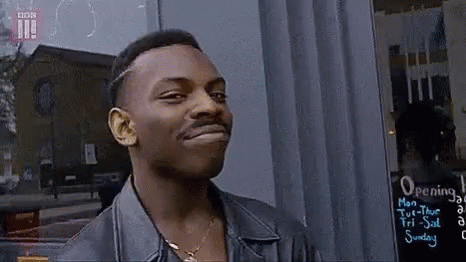
What has finally pushed me over the edge with Ticketmaster is the week of Jonas Brothers shows at the Marquis in New York. I’m just as peeved at the boys because they announced this barely a week ago, and the shows are in two weeks. That’s not enough time to prepare travel plans for a reasonable price. Each night is a different album. Super fun idea, I love it. However, the Marquis only holds up to 1000 people. So, we all signed up for VF. There’s no presale, there’s no general sale. You had to get VF in order to purchase tickets. Everyone I know, including myself, was waitlisted. When I looked at Ticketmaster last night, it said there would be VF tickets sold and OP tickets sold. So, I was able to calm down and I told myself I’ll try my luck with OP and see what happens. But when I tried to join the waiting room earlier today, Ticketmaster wouldn’t let me because I didn’t have a VF code associated with my account. I took to Twitter to see if anyone else was confused, and they were. Many people were asking why Ticketmaster would even advertise OP tickets if they weren’t actually going to sell any. I took a deep breath and went to Vivid Seats. Surely the ticket prices won’t be astronomical. It’s just the Jonas Brothers. WRONG AGAIN! Tickets are being resold for over $400. All I wanted was to listen to Lines, Vines and Trying Times in its entirety!
I think because of what happened with Taylor and the backlash Ticketmaster got, they cracked down on not letting people in unless they had VF, which I can respect. However, they shouldn’t have also advertised a sale for OP tickets. They claim they want to keep the tickets in the hands of the fans...
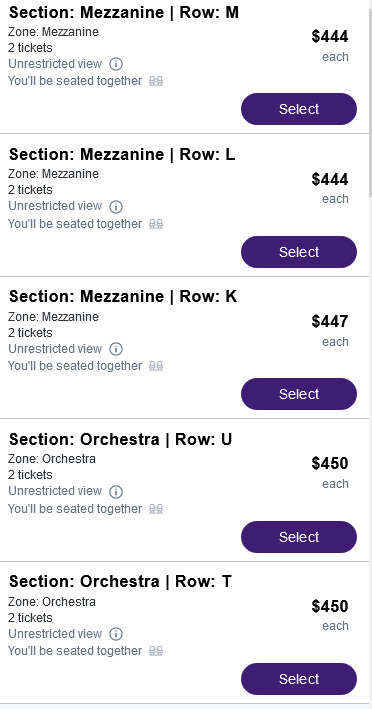
Does this look like fans bought the tickets? And it’s infuriating because Ticketmaster doesn’t care. Because guess what? The higher ups at Ticketmaster also don’t know how much a loaf of bread costs!
What’s worse is that what used to be a fun and easy thing to do, is now a battlefield. It sucks all the fun out of getting tickets for an event you and your friends are excited for. How can you feel excited when you’re sitting in a waiting room that refreshes into a queue that no matter what number you are in line you’re still not guaranteed tickets? It’s stressful, anxiety inducing, and completely unnecessary.
I know there was a time where before you could buy tickets online, people camped out for certain artists. But that’s a clear line, you know how many people are actually in front of you, and you’re not paying an arm and a leg for your ticket! Even when I was in high school, I could go online and buy tickets for a show and get really good seats for under $200.

We can’t go on like this. Beyonce, the woman preaching for people to quit their jobs and to release their minds, is selling tickets to her shows for astronomical prices just because she can. I know management has more to do with it. They’re using their cash cows to make even more cash. I get it, I really do. But what’s going to happen when this all finally crashes and burns? What happens when we all decide, “You know what? This isn’t worth it”? Artists only get to perform if they have an audience to perform to.
Something else that’s come from all of this stressful ticket buying is hostility within fandoms. If you’re not selected for VF or presales, then you’re telling the people that are getting early access that they’re not real fans, that you deserve it more than them. It’s not another person’s fault a computer selected them. It sucks, and believe me I’m disappointed too, but there’s no reason for animosity to occur because of it. That’s how the corporations win. They want us to turn against each other because they know if we all banded together and said enough is enough, they wouldn’t be able to keep getting away with all this.

Then when all these fans do get together, there’s hostility at the shows! Because people had to fight for their tickets, they come into these venues hot. I was lucky enough to go to both Palm Springs shows for Harry’s birthday. It was at a smaller arena. Two tickets I got off Ticketmaster (front row seats), and two tickets for the next night off of Vivid Seats (GA Pit). Because my friend and I had never been to this arena before, we asked where our section was and the person working told us where to go. So we sat and waited for the show to start. These two girls came over to us and demanded we show them our tickets because apparently we were in their seats. We realized we were in one section over from where our seats actually were. Easy mistake, right? It’s not like we had upper bowl and we were trying our luck at taking other people’s seats. But these girls were being so nasty about it, I finally spoke up and said, “Calm down, we’re all going to get to see him.” And they looked at me like I had three heads. My friend and I walked away and found our actual seats, which were in an even better spot. But still. We’re all going to see a man that preaches treating people with kindness. Those girls were not kind at all.
And when the lights go out and the artist comes on stage, for that brief time we all forget what we put ourselves through to get there. We’re in the moment, having fun with friends and strangers, singing and dancing to the music we all love. It’s so powerful being in a space with people who have all gathered to watch this one person. I’ve made some amazing friends over the last few years because artists have brought us together. And I’ve gone on some amazing once in a lifetime trips because of these artists.
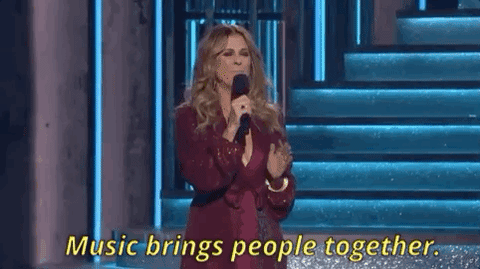
I’m lucky that I’m able to go do these shows. But what about people who aren’t? What about the fans who are living paycheck to paycheck that can’t afford not only a ticket, but other accommodations? Are they less deserving because they’re less affluent? Do the artists actually know who is making up their fanbases? Do the artists even care about how much a loaf of bread costs?
#how much is a loaf of bread?#mine#*#music#ticketmaster#concerts#taylor swift#harry styles#the jonas brothers#jonas brothers#nick jonas#kevin jonas#joe jonas#beyonce#live music#ticket prices#live nation
18 notes
·
View notes
Note
Hey Sea! I have a bit more technical question and I'm not sure you can answer it fully but any help is greatly appreciated! Sooo for a bit of background I've never been really close to an artist at a concert. The closest I've been was seeing Aerosmith one time on the 1st row of the 1st upper level, but it still was towards the back... Anyways basically I've always wanted to be at a concert ONCE in my life where I was in, say, the first 10 rows of the venue. Sort of to see if it's worth it (1/?)
and have the ability to see the artist up close and take nice HQ pics/vids. I'm not a spendy person but I think I'd like to splurge once. Here's where my actual questions start.. I'd like to see Louis on tour and he is definitely the artist I'd want to spend big like this on. On the BTY teaser it said something about his world tour and 2018. So he's starting in 2018 or announcing it? Because I'm a uni student but I have a part-time job on the side as well where I'd be willing to put away (2/?)a bit of money per month. I guess the question that ties into this bit is how much do you think tickets for Louis would cost that are that close? I know that sometimes they include a M&G which I don't necessarily want, which adds on more $$$. I've tried to do research on H and N's tours to see how much the front seats cost, but I've only found second-hand tickets that have been inflated, not the original prices. So do you know the original prices for those types of seats on H and N's tour? (3/?)And do you think that Louis would price his tickets similarly? I know a lot has to do with the venue and all that but I'm just trying to get a sense of things to see if this is a possibility for me, or if I should focus on saving up for merch. :) I hope you understand my situation - like I'm truly not a person who has tons of spare money but I've already began to cut back on some expenses and I'm trying to figure out a schedule of how much I should save per month.. Thanks for any help!!! (4/4)_____________Hi! If anyone reading this has any tips, please feel free to let me know and I will append to the reply. I assume that when Louis announces his tour, he will also sell tickets via the verified fan method through Ticketmaster. You'll have to sign up with email/ cell phone # as a fan through TM and wait for a code to be texted to you. The code is then used to purchase tickets. For Harry's 2017 tour, tickets were sold out for each venue within minutes. You were lucky to get a ticket at all, so seat selection depended on luck --- if you were offered a seat, it was best to take it. The 2018 tour has bigger venues and more seat selection. I think the most expensive tickets for the 2017 (depending on venue) was about $150. As soon as the tour sold out, tickets popped up on StubHub and other resale sites for $400-$900. I think there are resale tickets available now starting at $250-300, but not for the best seats. For Niall's concerts, I thought the tour sale was a much better experience. Maybe not as many verified codes were given out. I noticed that Ticketmaster tried to sell as many of the cheaper seats as possible first, without offering the better seats in the orchestra section. I rejected three seat offers before buying a ticket for the orchestra section, row E, center section for $68 (7 rows back). Niall tickets were priced less than Harry's--- I'm guessing about 20% less on average. If you wanted guarantee of close-up photos, meet & greet (if you can afford it) would be the best way to go. You might have to spend $600 or more for a resale ticket for the front rows anyway (for Harry's concerts, seats for the first few rows were reselling for $1000 or more). However, Harry M&G does not include meeting him. For Louis, because of the extreme loyalty of his fans, I expect a sale more like Harry's, with similar prices. I also expect a quick sell-out in smaller venues. If you don't get a good seat right away, you can always buy a ticket, sell it on a resell site, and use that money to buy a better ticket. Finally, you can consider buying a really good zoom lens for a full frame SLR camera, which might be more cost effective in the long run. I haven't been to a Harry concert yet--- in the past, some venues have not allowed digital SLR cameras or zoom lenses, so check first. Sometimes it costs a lot just to travel to the venue. I have been to OTRA 2015 where I sat about 10 rows away from the runway. It is magical to see the performer so close--- there's nothing quite like it. I think I would personally rather spend money on the tickets than merch, but merch never looks great on me, lol! I would figure out the total cost of your trip, including tickets, lodging, travel, and save at least 10% every month, if you can. If the album comes out in January, tour might be announced February to March. Good luck!
4 notes
·
View notes
Photo
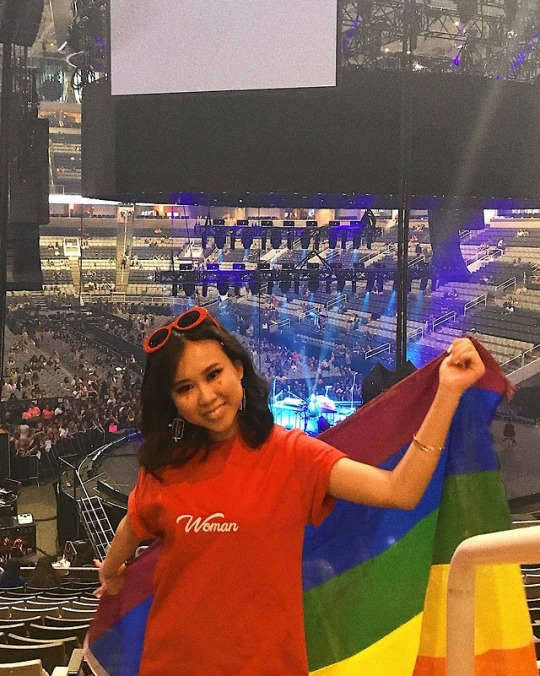

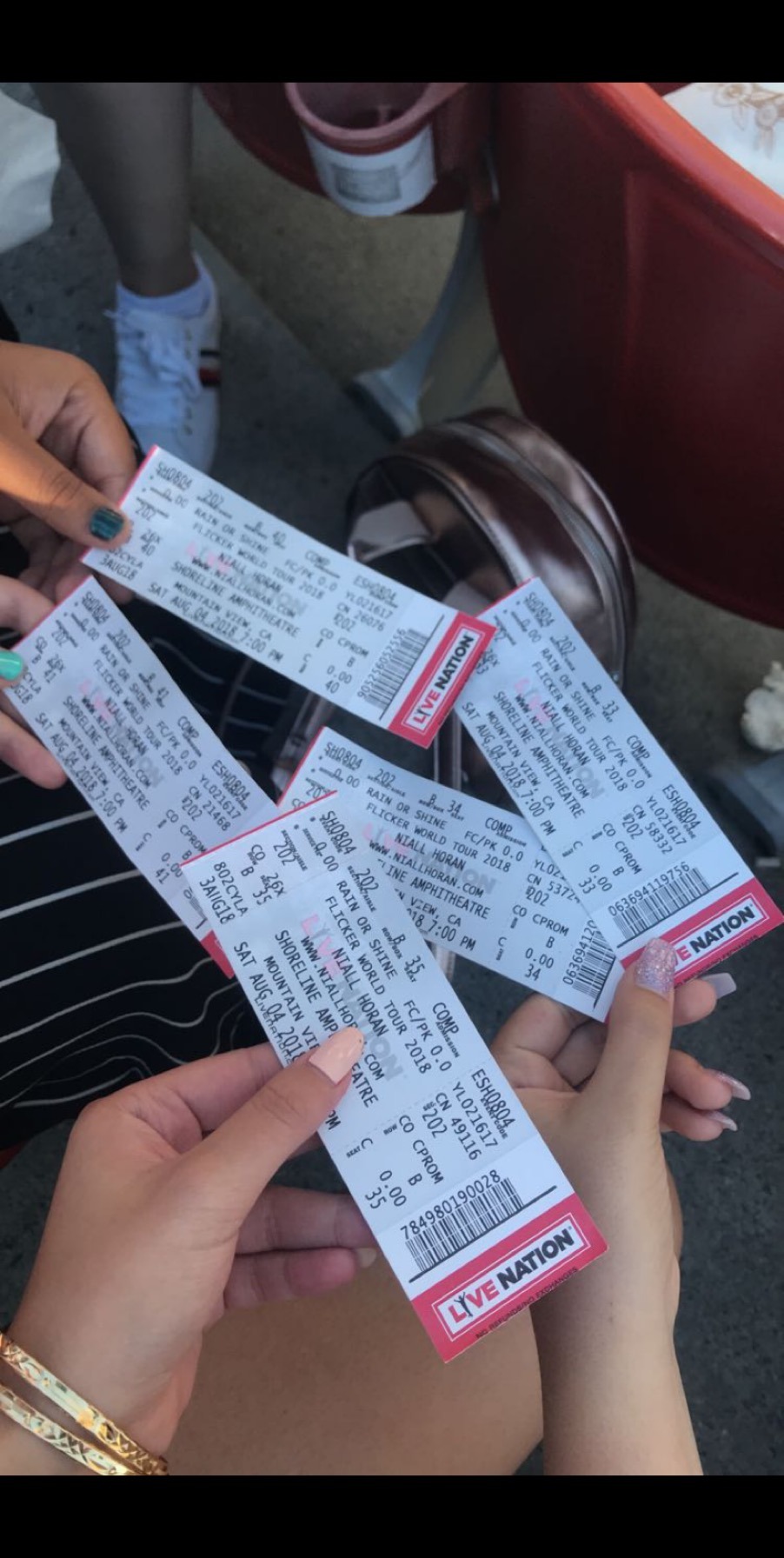

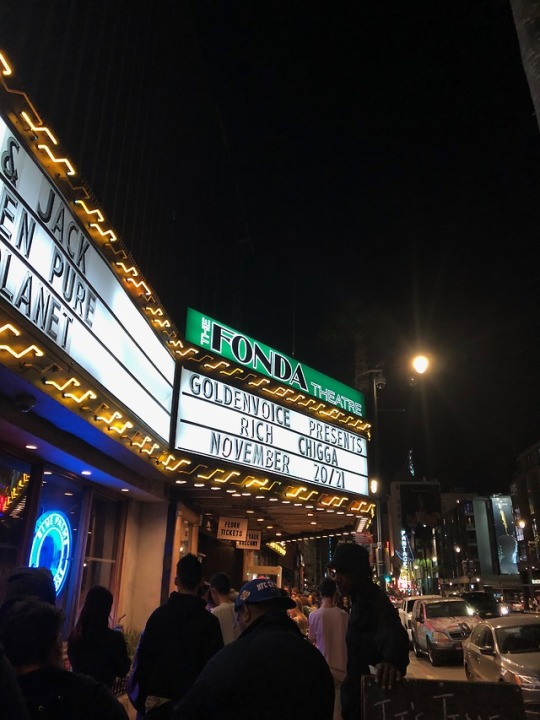
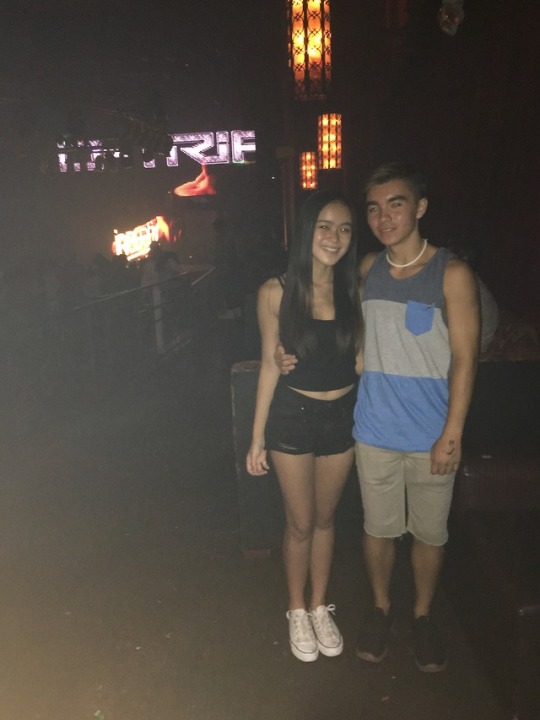
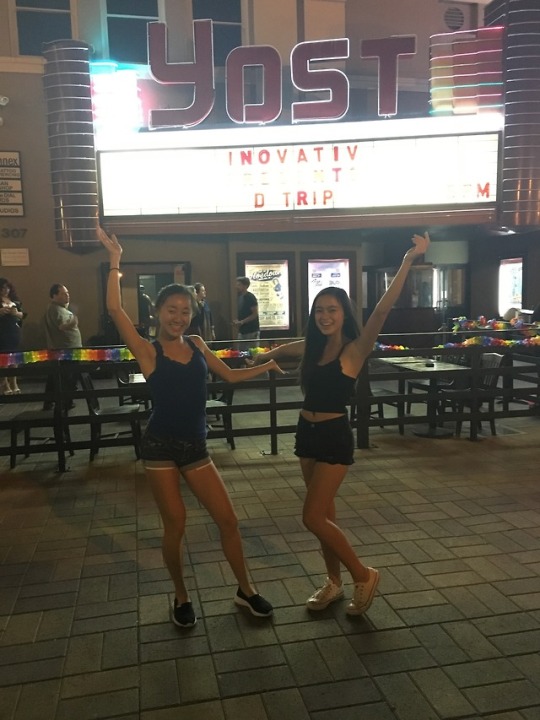
Econ Live
Econ 20A Winter 2019
Discussion Mon. 3pm
Tam Nhu Duong Nguyen (32867932)
Amanda Meilan Kwong (57481731)
-----------------------------------------------------------------------------------------------------------------------
Song sung to the tune of Wake Up in the Sky by Gucci Mane, Kodak Black, and Bruno Mars.
No copyright intended, this is simply a parody of the song for educational purposes.
-----------------------------------------------------------------------------------------------------------------------
Buy, buy, buy
It's Econ Live (it's 20A)
Huh? Econ (woo)
I sing ‘til I can’t (yeah), fangirl ‘til I die (yeah)
Concerts on the hill (well damn), wake up with some tears
You can't tell me it ain’t in high demand (you can't tell me it ain’t in high demand)
I know the supply’s super low (I know), I know I’m super broke (I know)
The ladies love the luxury (yeah)
That's why they all pay to see me (woo)
Out here with the profits (yeesh) like I invented oligopoly
You can't tell me it ain’t in high demand (you can't tell me it ain’t in high demand )
I know I'm super broke (I know), I know I'm super broke
Huh, huh, huh
I stay broke as heck, take a risk, I might as well
Drop the cost and pay the price, Harry Styles ain’t sing for himself
I got fangirls payin’, homie, college girls profitin' for me (woo)
All my profits custom so they inflatin' and they risin' on you
Ooh, think it's high demand
Ooh, think it's low supply
Ooh, it's so profitable
Ooh, ooh, ooh
I smell some illegal resellers, yikes
Section full of overpriced tickets
Government is starin' at me sayin', "Wow"
Unforgettable like Ticketmaster
Harry Styles, I'm sellin' to your consumers (well damn)
A one man supplier, a human bank roll (whoa)
She lost in the inflation 'cause Econ got the glow (huh)
I pay 'til I'm broke (brra), work 'til I’m rich (it's Guc')
Concert on the hill (heh), wake up with some tears (you won't)
You can't tell me it ain’t in high demand (you can't tell me it ain’t in high demand)
I know the supply’s super low (I know), I know I’m super broke (I know)
The ladies love my customer service, that's why they all come back to me
Out here with the consistency like I invented customer loyalty
You can't tell me it ain’t in high demand (you can't tell me it ain’t in high demand)
I know supply’s super low (I know), I know I’m super broke (I know)
Now watch me buy, buy
Now watch me buy, buy
You can't tell me I won’t buy
You can't tell me I won’t buy
I know I'm gonna buy, I know I’m gonna buy (Kodak, Kodak)
I'm gonna buy, don't need no convincin’
Harry Edward Styles, don't need no advertisin’
I ain't never had no man to cry for, yeah
Now all his records trendin'
Oh my, I came from campin’ out to gettin’ barricade
I don't know why I been lovin' Harry Styles so much
But this my life
I'm on customer loyalty, I be takin’ opportunity costs just to see him
Like it's easy, I drop 5 hundred for these tickets
It's Ticketmaster, take a pic
I sell out real quick
All these resellers got me sick, they actin' spoiled
Prices sittin' high, I feel like I can cry
So overpriced to death it's crazy, feel like I can die
I done finally got my tickets, they make me wanna scream (grrr)
I sing ‘til I can’t (‘til I can’t)
fangirl ‘til I die (‘til I die)
Concert on the hill (ayy), wake up with some tears
You can't tell me it ain’t in high demand (you can't tell me it ain’t in high demand , baby)
I know supply’s super low (I know it)
I know I'm super broke (I know it)
The ladies love seeing me, that's why I get all the profit (ayy)
Out here with the demands like I invented success (yo, yo)
You can't tell me it ain’t in high demand (you can't tell me it ain’t in high demand, baby)
I know supply’s super low (I know it)
I know I'm super broke (I know it)
Now, now watch me buy, buy
Now watch me buy, buy
You can't tell me I won’t buy
I know I'm gonna buy, THIS WAS OUR ECON LIVE.
-----------------------------------------------------------------------------------------------------------------------
Explanation:
We wrote about how the struggle to find concert tickets, and how the joy of attending concerts affects our lives, and involves multiple topics we have discussed in Econ 20A.
In our parody of the song, “Wake Up in the Sky by Gucci Mane, Kodak Black, and Bruno Mars,” we wanted to portray to our best ability how concerts and concert tickets relate to economics. We mentioned opportunity costs, oligopolies, consumer loyalty, profits, risks, inflation, demand, supply, and so much more. We highlighted the struggle fans have when trying to find a concert ticket among the large herd of fans who also demand a ticket. We also point out that companies like ticketmaster have great customer loyalty because people can depend on them to offer concert tickets at decent prices. Next we mentioned that certain artists such as Harry Styles don’t need to advertise for concerts frequently because his fan base his so strong, and people will demand to see him live simply after listening to his beautiful music. Lastly, we talked about the dirty, dirty ticket resellers who recognize the high demand and use it to their advantage to make a profit for themselves.
There are an abundance of people who have a high demand for concert tickets, but yet only a few companies choose to supply these tickets, which in turn creates a high demand, low supply environment. The search for concert tickets is aggressively competitive, and some websites sell out tickets in less than a minute. There have been times where I have my credit card ready to go the minute tickets come on sale, I put the ticket in my cart, and then seconds later it says the concert is sold out even the VIP tickets! It is really frustrating looking for tickets when supply is this low, because it seems almost impossible to find a ticket. Due to the fact there are only a handful of suppliers, these ticket companies are an oligopoly, and have the ability to raise the prices of tickets in order to maximize their profits. Since demand does not change much even if prices are steep, the demand is pretty inelastic for concert tickets. Ticket master essentially owns our wallets.
Some people, including illegal resellers, buy tickets, then resell them for a much higher price to earn a profit for themselves. These people basically make businesses from reselling tickets, and may buy tickets just with the intention of reselling. Sometimes if I really want a ticket to attend a concert, I have no other choice but to buy from these resellers because the supply is so scarce. I have seen people try to sell tickets for double, or even triple the amount they bought them for, which is ridiculous. Many of these scalpers profit greatly from reselling tickets, but I wish they were more reasonable because people just want to see their favorite artists live without having a negative balance in their account. The most I have paid for a ticket from a reseller is only $20 over the face value price, I would never feel right giving triple the price let alone double the price to these scalpers.
In addition to the struggle of finding and paying for a ticket, there are many opportunity costs of going to a concert. For instance, the time spent at the concert could be used to nap or do homework, or eat. Concerts can be pretty lengthy because of the time you must wait in line to go into the venue, the time you wait for the show to start, and the time you wait for the main artist to come out. All the time spent that I spent at the concert could have been used to catch up on sleeping. Also, for every hour I spent waiting in line, I could’ve been doing one more Aplia assignment, or one more GAP assignment. I give up time to do my homework, and instead use my time to wait in line to see these beloved artists. Also, the money spent on the concert tickets could be used to save up for new shoes or new clothes, things that are tangible and will be used frequently. If I spend all my money on concert tickets, I cannot afford new shoes. However, if I did not attend the concert I could buy 2 pairs of rainbows for example. Still, concerts makes people extremely happy and provides them with countless, unforgettable memories. Concerts are something you can use to bond with the new people you can potentially meet at these events and even become closer to them afterwards. Concerts have the characteristic of being unique, because each concert you experience will be different than the last, making the cost worth it.
0 notes
Text
Why theatergoers are giving ‘Frozen’ the cold shoulder
Need room to unfold out? Head to the St. James Theatre on Broadway, the place empty seats abound at the musical “Frozen.” However isn’t Disney’s story of ice queen Elsa and sister Anna imagined to be a megahit? Isn’t the theater at capability each single evening? The numbers, theater sources say, are misleading. “It’s a trick of the eye,” says one. “Name it Disney Magic!” Though box-office studies present the theater usually at 98 p.c offered, a fast scan of StubHub, a ticket resale Website, reveals that a whole lot of seats are nonetheless accessible in the 1,710-seat home for a lot of upcoming performances of the household musical, which shuffled house empty-handed from Sunday’s Tony Awards. As of 1:30 p.m. on Thursday, there have been nonetheless 270 tickets on the market on StubHub for the Saturday-night present. The bulk have been priced nicely beneath face worth, together with one in the mezzanine for $32. (Brokers will typically try and promote tickets they don’t have in hand, which inflates the variety of accessible seats on StubHub. However they sometimes do that for tickets promoting above face worth; these priced beneath recommend they’re trying to offload tickets they already possess.) “We went to a Friday-night efficiency the place the theater solely appeared about three-quarters full,” a latest viewers member says. “Swaths of the orchestra and pockets of the entrance mezzanine have been empty.” (Disney maintains that 93 p.c of its seats are crammed, with the tickets scanned at the door.) [embedded content] The empty chairs are stunning. A yr in the past, no one thought that “Frozen,” the highest-grossing animated movie of all time with worldwide box-office income of greater than $1.2 billion, would have a lot as a dent in its armor. What the Elsa is happening? When tickets went on sale in August 2017, a slew have been snapped up by brokers, who make their dwelling reselling seats at sizzling reveals for way over face worth. Sources say the Home of Mouse made their job too straightforward. “Why didn’t Disney use Ticketmaster Verified Fan?” asks one business vet of the service that in style reveals, akin to “Hamilton” and “Springsteen on Broadway,” use to aim to make sure that actual viewers members, not resellers, are shopping for their precious tickets. “I assume [Disney] didn’t know what that they had, they usually have been keen to promote tickets to anyone who wished them.” Disney says that gross sales are strong — setting two home data and opening with the largest advance of any Disney present ever. “Future gross sales are simply as sturdy,” says Andrew Flatt, senior vp of technique, advertising and marketing and income for Disney Theatrical Productions. “Our major concern is getting tickets into the arms of theatergoers by cheap costs and verified technique of buy, and if brokers discover themselves decreasing their costs from outrageous ranges, it’s nice information for the ticket purchaser.” “Frozen” opened in March to middling critiques and phrase of mouth as mini as a mouse, though some youthful theatergoers have been thrilled. ‘We’ve died with quite a lot of [tickets] — which means we don’t promote them by the time the present begins. And even after we convey the worth down, individuals are simply not shopping for them.’ The manufacturing had been affected by issues, together with the late firing of unique director Alex Timbers and hasty hiring of Michael Grandage with no delay to the present’s Denver tryout or Broadway opening. (Timbers has since rebounded, directing “Moulin Rouge! The Musical” in Boston this month.) Upon discovering the public’s small urge for food, these determined brokers are now attempting to unload heaps of tickets on StubHub and different Internet sites for lower than face worth. (Disney Theatrical says the resale market represents a small share of ticket stock.) Brick-and-mortar brokers are hurting, too. “We’ve died with quite a lot of [tickets] — which means we don’t promote them by the time the present begins,” a ticket dealer in Occasions Sq. says. “And even after we convey the worth down, individuals are simply not shopping for them,” she says, including that the Tonys broadcast, which featured a “Frozen” efficiency, made little distinction. The business vet says the present’s seemingly swell box-office numbers will begin to dip in September. Brokers usually don’t go wild for weekday tickets throughout that sluggish month as a result of tourism slips and, for household reveals, youngsters are again in class. They usually’ll drop precipitously in March 2019, after the present’s first yr on Broadway is completed. Brokers often purchase solely 12 months’ value of seats, in line with the business vet. “I feel it can solely run two years,” the vet says, including that its reported $63 million advance can’t make up for doubtless sky-high weekly working prices and more and more low demand. “The movie has much less juice the additional away you get from it.” Anna (Patti Murin, left) and Elsa (Caissie Levy) in “Frozen.”Deen van Meer Simply because the movie was a fantastic success doesn’t imply the present has legs — particularly if it doesn’t have crossover enchantment past households with aspiring princesses. In the case of “Frozen,” “if it’s a household with girls and boys, the boys have little interest in it,” the Occasions Sq. dealer says. There have been different Disney flops. “The Little Mermaid” nose-dived, working for lower than two years because of atrocious critiques that attacked the route and design. “Tarzan” clung to the vines for simply over a yr as a result of the supply materials had restricted enchantment. “The Lion King,” on the different hand, has roared into its 20th yr on Broadway, and encompasses a beloved rating by Elton John and clever staging by acclaimed director Julie Taymor. One other dangerous signal for Elsa & Co.: They’re handing out, nicely, indicators. This week staff outdoors the Disney Retailer in Occasions Sq. started tossing paper followers emblazoned with the “Frozen” brand at passers-by. A Tony Award-winning producer says: “That’s an previous thought. It’s for 90-degree climate, and it gained’t promote a ticket!” Disney is advertising and marketing its reveals — together with “Frozen” — on followers. The forged album for “Frozen” was coolly acquired, too. It debuted on the Billboard 200 albums chart at No. 158. “Hamilton,” which has been open on Broadway since 2015, positioned 27th the identical week. Disney’s album hasn’t charted since. West Finish sources say “Frozen” may not make the journey throughout the pond, both. The present is slated to open at the Theatre Royal Drury Lane in 2020. However these plans have been made earlier than the ice hit the fan. A West Finish producer says the well-known theater, which is owned by Andrew Lloyd Webber, might use an upcoming intensive renovation as an excuse to get out of the deal. The development will start in Might 2019 after its present tenant, “42nd Avenue,” closes in March. And crews are not simply ripping up the carpet and portray the pillars. The plan is so as to add six rows to the entrance of the mezzanine and a brand new restaurant. “Conservatively, let’s say the theater will open in summer season 2021,” one other West Finish supply says. “In three years, you’re telling me Andrew goes to let a Broadway flop reopen the jewel of the West Finish, when his rival Cameron Waterproof coat bought ‘Hamilton’ to reopen the Victoria Palace? “Andrew’s not going to desire a dud.” Appears prefer it’s “Iceberg, ahoy!” for “Frozen.” Share this: https://nypost.com/2018/06/14/why-theatergoers-are-giving-frozen-the-cold-shoulder/ The post Why theatergoers are giving ‘Frozen’ the cold shoulder appeared first on My style by Kartia. https://www.kartiavelino.com/2018/06/why-theatergoers-are-giving-frozen-the-cold-shoulder.html
0 notes
Text
The Blockchain Token Velocity Challenge
http://www.cryptoga.com/news/the-blockchain-token-velocity-challenge/
The Blockchain Token Velocity Challenge
Kyle Samani is the co-founder and controlling partner of Multicoin Money, a new thesis-driven crypto fund that invests with a multi-calendar year time horizon in blockchain tokens.
Basically, all token pitches consist of a line that goes some thing like this: “There is a mounted supply of tokens. As demand from customers for the token increases, so need to the value.”
This logic fails to get into account the velocity difficulty.
In this post, I’ll describe the velocity difficulty by offering an in-depth instance. Then I’ll take a look at mechanisms that cut down velocity.
A significant-velocity instance
Ticket fraud (actually reprinting and selling a ticket several occasions) for activities is a huge difficulty.
There is certainly a sensible case to be manufactured that tickets for dwell activities really should be issued on blockchains. If venues occur to acknowledge blockchain-issued tickets, this remedy really should stomp out all fraud. You can’t double expend blockchain-primarily based property.
Issuing tickets on blockchains can convey other added benefits, which include disallowing resale, earnings sharing on resale back to the location, capping resale amounts, etcetera. Ticketing on-chain really should generate a large amount of price for venues, artists and people: it removes fraud, lowers scalping, and lowers fees to middlemen like Ticketmaster and StubHub.
Although I appreciate this use case for blockchains, there is no cause that I, as a full-time crypto investor (speculator), want to really keep Aventus, Ticketchain or Blocktix tokens (all a few are blockchain-primarily based ticket issuance platforms). Even if these platforms develop into commonly utilised and procedure tens of billions of bucks of transactions, their underlying token mechanics are not structured so that the value of the underlying token will materially enjoy.
Take into account a hypothetical platform that we’ll simply call Karn, in honor of the exhibit that by no means ends.
Buyers want to fork out for tickets denominated in bucks. They may order Karn tokens as section of the ticket acquisition procedure, but they is not going to keep the tokens for extra than a couple minutes at a time. There is certainly only no incentive to keep them and incur value threat relative to the dollar.
Venues also never have an incentive to keep Karn tokens for the reason that they, far too, want to prevent value threat. Right after people trade their tokens for concert tickets, location hosts will trade Karn tokens for their most well-liked forex. Notice that this cycle can be finished in seconds by leveraging decentralized exchanges this sort of as 0x.
No one particular really desires to keep Karn tokens. The presence of a proprietary token really makes a worse UX for people by introducing an unneeded layer of friction into the ticket obtaining procedure. The minute anybody gets Karn tokens, they exchange them for some thing else – both a ticket (shopper) or bucks (location).
Even if Karn results in being the international regular for ticket issuance, no one particular will want to keep it. BTC/ETH/USD-denominated trading quantity for Karn tokens may skyrocket as the platform results in being the international ticketing regular, but the value will mature sub-linearly relative to transaction throughput.
The key stakeholder team who will earnings from the increase in trading quantity of Karen tokens will be market place makers who present liquidity for those moving into and exiting the market place. This is not a poor detail. As asset pairs maximize in quantity and develop into extremely liquid, bid-talk to spreads collapse to in the vicinity of per cent, which is good for people and location hosts.
To be clear, in this scenario the location hosts nevertheless earn by slicing out scalpers, and people earn for the reason that of amplified fraud defense. But despite delivering real, tangible added benefits to market participants, our fictional Karn token is not going to really capture the price the protocol is producing.
Quantifying velocity
Here’s in which velocity comes in. I determine it as follows:
Velocity = Complete Transaction Volume / Typical Network Worth
Hence:
Typical Network Worth = Complete Transaction Volume / Velocity
Velocity can be measured over any time span, but is ordinarily measured annually. Buying and selling quantity can be tough to measure. This not only contains trading quantity that occurs on exchanges, but over-the-counter trades and actual utilization of the platform.
We can say that an asset has a velocity of if, over the study course of a calendar year, no one particular purchases or sells it. The deficiency of liquidity would trigger the asset to trade at a low cost to its “intrinsic” price. Belongings will need some velocity to realize their full intrinsic price. The difference is recognised as the liquidity quality.
In the case of a proprietary payment token that no person desires to keep, velocity will mature linearly with transaction quantity. For every the second equation previously mentioned, transaction quantity could mature a million-fold and community price could keep on being continuous. Nearly all utility tokens experience from this difficulty.
Reducing velocity
There are a couple techniques a protocol can cut down the velocity of its connected asset.
1) Introduce a earnings-share (or buy-and-burn) mechanism: For instance, the Augur ($REP) community pays REP holders for accomplishing do the job for the community. REP tokens are like taxi medallions: you need to fork out for the appropriate to do the job for the community. Especially, REP holders need to report celebration outcomes to resolve prediction markets. A earnings-share mechanism lowers token velocity for the reason that as the market place value of an asset decreases, its yield increases. If the yield results in being far too significant, market place participants searching for yield will buy and keep the asset, escalating value and reducing velocity.
Also, a dollars-circulation stream makes a token a lot easier to price utilizing a classic discounted dollars-circulation (DCF) product.
2) Establish staking features into the protocol that lock up the asset: This contains evidence-of-stake mechanisms for acquiring community-layer consensus. However there are considerably extra persuasive causes to stake than only to realize node consensus. For instance, FunFair is a platform that powers on the web casinos. FunFair only supports one particular-in opposition to-one particular game titles this sort of that the participant is taking part in the household right (therefore no poker). The household need to maintain reserves to fork out out extremely unlikely activities, this sort of as a user profitable significant in slots or profitable 10 occasions in a row in blackjack. The casino operators will will need to lock up considerably extra than 50 per cent of all tokens.
3) Well balanced burn-and-mint mechanics: Factom is the greatest, and most likely only, instance.
A amount of protocols have carried out the burn concept (devoid of minting), notably FunFair. I am extremely skeptical of currencies that are explicitly deflationary to generate upwards value pressure on the price of the token. In the extensive operate, deflationary currencies will generate odd incentives for holders, leading to unneeded volatility thanks to excessive speculation. Burn off-and-mint addresses this difficulty.
In Factom, the charge of utilizing the protocol is denominated in U.S. bucks at $.001. Just about every use is $.001, no matter of the value of FCT. People burn tokens to use the protocol as designed. Independently, the protocol mints 73,000 new tokens every single thirty day period and distributes them to validators (Factom is its very own chain, not an ERC20 token). If users never burn 73,000 tokens in a thirty day period, supply increases, which really should exert downwards value pressure. Conversely, if users burn extra than 73,000 tokens for each thirty day period, supply decreases, exerting upward value pressure. In the extensive operate, there really should be linear partnership amongst the utilization of protocol and value.
The burn-and-mint dynamic is doable for the reason that Factom is its very own chain. ERC20 tokens do not have community validators who can be compensated via inflation. Burn off-and-mint is doable for ERC20 tokens, albeit trickier. There is certainly not a generic, clear set of community participants who really should obtain the tokens that are created by inflation. Also, extra technically: inflation is tough to implement for the reason that smart contracts simply cannot operate as daemons that car-inflate they need to be induced.
4) Gamification to persuade keeping: Let us revisit ticketing. Considering the fact that quite a few concerts offer out immediately, venues could prioritize shoppers primarily based on having held X tokens for Y times. If adequate venues adopt this mechanic, velocity will fall.
One more instance: YouNow is rolling out a proprietary in-application cryptocurrency named PROPS that will allow users to tip material creators for the duration of dwell video clip broadcasts. YouNow also has a “find out” tab. The YouNow assistance is extra possible to rank a creator’s material extremely if they keep tokens. This makes an appealing dynamic in which material creators are paid in PROPS, but will need to change to fiat to fork out the payments. On the other hand, they want to hoard tokens to develop into extra discoverable, fueling extra notice and producing extra tip-primarily based money.
5) Become a retail outlet of price: This is by considerably the most tough to realize as it’s not a functionality of a precise design mechanic, but alternatively a problem of broader technical viability and market place acceptance. If men and women truly occur to believe that in a token as a retail outlet of price, there will be a considerable likelihood that they are eager to keep on to excess tokens alternatively than offer them for some thing else.
One particular cause to keep an asset is an expectation that it will maximize in value. In concept, this really should dampen velocity and push up the value of the asset. This generally defines bitcoin now. Bitcoin’s price is a functionality of a speculative price video game, not from intrinsic utility as a payment procedure.
One more cause to keep an asset is the expectation that its price will be secure. A amount of stablecoin initiatives this sort of as Maker and Basecoin are hoping to generate trustless property that are value-secure on the open up market place.
Turning into a general-intent retail outlet of price is very tough. There are only a handful of initiatives even trying to fulfill this vision now. It really is not clear how dominant the extensive-operate winner will be. You can make beautifully rational arguments for a handful of currencies with 20–30 per cent of international price every single, a 75-5-5-5-5-5 per cent break up, or an 80-20 per cent break up. Although income has a powerful community outcomes, it’s not clear how powerful those outcomes are, or how a lot the market place will demand from customers feasible competition to mitigate macro-amount threat connected with a single mega forex.
Takeaways
Velocity is one particular of the essential levers that will impact extensive-phrase, non-speculative price.
Most utility tokens never present a persuasive cause for token holders to keep the token for extra than a couple seconds. Absent speculation, property with significant velocity will struggle to maintain extensive-phrase value appreciation.
That’s why, protocol designers will be well served to include mechanisms into their protocols that persuade keeping, not just utilization.
Gasoline pedal impression via Shutterstock
The chief in blockchain information, CoinDesk strives to supply an open up platform for dialogue and dialogue on all factors blockchain by encouraging contributed articles. As this sort of, the viewpoints expressed in this write-up are the author’s very own and do not always reflect the see of CoinDesk.
For extra aspects on how you can submit an impression or evaluation write-up, see our Editorial Collaboration Tutorial or e-mail [email protected].
Disclaimer: This write-up really should not be taken as, and is not supposed to present, financial commitment information. Remember to conduct your very own complete exploration just before investing in any cryptocurrency.
0 notes
Text

The Bots Come Out At Night
nline ticket scalping (or touting) is the act of using abusive software (known as “bots”) to automate the purchase of tickets and sell them on at inflated prices. This practice damages the reputation of our clients, who want to offer tickets at reasonable prices. Since tickets have been available online, industrial-scale scalpers have used automated bots to systematically profit within the secondary ticket market, at the expense of fans.
Over the few last years, we’ve seen mounting public pressure putting the spotlight on those individuals and companies who profit from selling on the secondary ticket market, which is estimated to be worth over £1 billion in the United Kingdom. Meanwhile, proponents within the ticketing industry, notably the pressure group Fan Fair Alliance, are actively working to generate awareness of the problem on a multiple of different fronts.
Legislation is beginning to catch up with scalpers too. In the United States, the Better Online Ticket Sales Act, or the BOTS Act, was signed into law in 2016. This law effectively makes it illegal to use automated software to buy tickets in order to circumvent the “control measures” used by ticket sellers. In other words, if a ticket seller has actively employed measures to stop scalpers, then you’re breaking the law by using bots to get around them. This does however mean that in order for ticket sellers to prosecute scalpers, they need to provide evidence that they have put adequate measures in place, as well as an audit trail of the accused illicit behaviour.

This month Ticketmaster filed a $10 million suit against Prestige Entertainment, who are alleged to have used bots to scope up thousands of tickets for the Broadway smash hit Hamilton, amongst other high demand ticketed events. It is one of the first major lawsuits since the introduction of the BOTS act, and comes after two years of monitoring and tracking automated transactions, and subsequent sales on the secondary market.
Similar legislation has been lobbied in the U.K. Houses of Parliament, resulting in the independent report into the secondary ticketing market by Professor Michael Waterson. The U.K. moved towards criminalising the use of “digital purchasing software” with the Digital Economy Act 2017, which received royal assent in April and has now become law. It gives the Government the power to make it a criminal offence to use bots in order to bypass maximum ticket purchases set by event organisers.
So, as the gatekeeper for over $500 million worth of online ticket sales for non-profits every year, how can we at Made Media do our bit in the battle against scalpers? Let’s discuss how these bots actually work.
There are three main categories of bots that we see attempting to infiltrate our systems:
1. Drop Checkers or Spinner Bots. Most of the traffic we see are bots waiting for tickets to be released for sale. Usually, we’ve found these bots come out at night. They constantly probe ticketing pages which display availability both before an event that is due to go on sale and after the event is sold out (in case additional performances are put on-sale, or new tickets are released). Amusingly, we had one bot spinning around the booking page for Kylie Minogue for months after the event had sold out. The goal of these bots is to detect when tickets are released and initiate an army of…
2. Acquisition Bots. The goal of these bots is to find the best inventory available for an event and reserve it for purchase. This is the most dangerous kind of bot, because once tickets are held in a bot’s shopping cart, they’re unavailable to other customers. The game is effectively lost at this point. As the ticket scalpers have potentially hundreds of bots at their disposal, they can effectively pick and choose the most valuable tickets for resale at leisure. Causal scalpers can finish the checkout process manually, but larger scale scalpers use...
3. Expediting Bots. Once tickets are selected to buy, scalpers use these kind of bots to automate their actual purchase, they effectively login, enter all the required information to pass through the ticket purchase path, and complete the order from a batch of credit cards. These are usually from a selection of accounts of pre-made accounts created in advance (also farmed using a different kind of bot), and can use fraudulent credit cards for the actual purchase.
These bots are categorised and defined under OAT-005 in the OWASP Automated Threat Handbook, which goes into further detail of their characteristics and traits. Depending on the kind of purchase path, automated software may use CAPTCHA Defeat bots if necessary, which utilise comprehensive databases of image-word mappings to bypass CAPTCHA, which can be beaten easily (although we have high hopes for Google’s Invisible reCAPTCHA, which is on the horizon.)
These bots are usually coordinated by a single purchasing script or custom built software. For example, the website TicketBots sells off the shelf software (currently discounted at $10,000) to completely automate this process of holding inventory and purchasing tickets online via Ticketmaster.

Example user interface for executing spinner bots
We currently integrate with a number of different web solutions that identify and block traffic identified as bots. Given that we develop, host, and maintain many of our clients’ ecommerce solutions, we are well positioned to help keep inventory away from resale websites. Our CrowdHandler platform, for example, sits between customers and the ecommerce path; customers (or bots for that matter) cannot access tickets without first passing through the queue.
In computer science, the task of distinguishing between a bot and genuine customers can be viewed as a classification problem with the goal of, given a large multidimensional dataset, identifying the authenticity of the end user in real time. And, although the tech industry’s latest buzzword, Machine Learning, combined with domain driven heuristics, could play a role in tackling this issue. We’ve found that for these AI-driven solutions to be effective, large training datasets (e.g. web traffic) are required, and a reliable feedback mechanism to inform a learning algorithm.
Machine Learning allows us to identify patterns in bot behaviour that even the most sophisticated bots exhibit—trails they do not realise they’re leaving behind.
One approach we are currently working on uses (anonymous) data we’ve mined, adding AI to the way customers are allowed through the website through the use of Artificial Intelligence and Amazon Web Services. Machine Learning allows us to identify patterns in bot behaviour that even the most sophisticated bots exhibit—trails they do not realise they’re leaving behind. It will better classify between users in the virtual queue who are bots, and those who are genuine fans. And with the use of feedback mechanisms (i.e. supplying the algorithm with data confirmed to be scalpers), this prevention mechanism will learn and adapt as scalpers change their methods and strategies to circumvent detection.
In this way, CrowdHandler effectively acts like a bouncer outside your local nightclub. The algorithm scans users waiting in the queue and analyses multiple attributes about their identity, but also their behaviour up until the point of entering the queue. These scalpers/touts are effectively “bounced” to the back of the queue or blocked completely, allowing real fans access to tickets. And whilst we have some useful heuristic-based blocking rules in place (e.g. frequency of requests combined with number of sessions from a single IP address, user agent strings) there is certainly more experimentation to be done in order to combat the degree of sophisticated attacks these bots present.
So, the battle against bots is an ongoing one. Legislative action is allowing primary ticket sellers (who have preventative measures in place) to seek the prosecution of scalpers/touts, who could be subject to unlimited fines or incarceration. Greater transparency of sellers on secondary ticket markets will help us develop better algorithms for stopping scalpers at the box office. There are other fronts opening up on this fight too, for example Ticketmaster’s Paperless Ticketing program, which challenges how we identify ticket holders at point of entry. All of this provides incentive to invest and enhance our tout / scalper detection system, with the aim of protecting the reputation of our clients.
0 notes